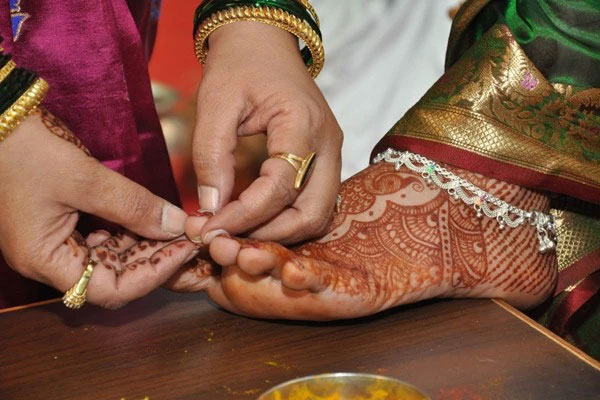Top 10 unique things that only exist in some countries in the world, seemingly normal but extremely interesting
These "unwritten" rules in these countries will certainly surprise many people.
There are over 190 countries in the world, and each country has its own unique culture. Although the internet age has made it easier for us to learn about cultural diversity, there are still many interesting things that we rarely get to know. Here are some interesting facts about countries around the world.
1. Wooden bathtubs used in Japan

Furo, also known as Ofuro, is a traditional Japanese bath. However, the bathtubs used by Japanese people are made of wood instead of porcelain like other countries. Besides, Japanese people believe that these wooden bathtubs are used not to clean the body but the mind. After a hard day's work, they return home with the desire to relax and warm themselves in furo.
2. Indian women wear wedding rings. on their toes

Wedding rings are usually worn on the ring finger of the left hand in many countries around the world. However, Indians usually wear the ring on the right hand because the left ear is considered unclean. For married women in this country, they wear the wedding ring on the toe called Bichiya.
3. Fermented fish stinks in Sweden

Since the 16th century, lightly salted, naturally fermented Baltic herring has been a part of Swedish cuisine. Before it is packaged and sold in tins, the herring undergoes a two-month fermentation process in salty brine, giving it a strong odor and making it quite unpalatable to many.
4. Bamboo poles used as drying racks in Singapore

In Singapore, the bamboo tube socket system is used to dry laundry. Instead of hanging clothes on hangers or drying clothes in a dryer, Singaporeans will tie clean clothes to bamboo poles, which are then plugged into sockets outside the kitchen window, similar to flagpoles. The tube socket system is often found in old apartment buildings, where the houses are close together and have small areas.
5. Super narrow staircase in the Netherlands

To some foreigners, stairs in the Netherlands can seem more like a safety hazard than anything else. This stems from a history where buildings were designed to maximize vertical space rather than horizontal space, in order to save every possible centimeter.
6. Public transport in Luxembourg

While in developed countries, charging for public transport is still a normal thing, in Luxembourg, this service is completely free. Being the first country in the world to provide free public transport nationwide for everyone, this has greatly encouraged people to use public transport.
7. Traffic lights in Japan are blue.

If you are too familiar with the traffic lights having 3 colors: red, green, yellow, you will be surprised when you set foot in Japan. Accordingly, the official traffic documents of this country all call the green traffic light "ao" (blue) and not "midori" (green)".
8. Smiling at strangers in Türkiye is not recommended.

Turks are undoubtedly some of the most hospitable people in the world. However, when it comes to strangers, they can be quite reserved. Smiling at strangers is considered quite uncomfortable for Turks. However, with people they know, Turks are quite warm and will go out of their way to make them feel welcome.
9. Afghans will kiss bread if they drop it.

In Afghanistan and other Muslim countries, if you drop a piece of bread, you should pick it up as quickly as possible and kiss it. This is considered a sign of respect for the food. So if you don't want to have to do this, be careful and don't drop anything.
10. Being late in Mexico is a habit.

Unlike most countries in the world where punctuality is considered the most important thing, Mexicans have an unwritten rule that is completely opposite. It is known that whether they have an important meeting or a party with friends, they will definitely arrive later than the appointed time. However, this is a normal event, but important official events such as meetings, work. still have to comply with the time.
This tradition is said to have originated from the fact that in the past, Mexico had a very long period of major problems with public transportation, so being late became a habit.
- 9 countries own the most unique and most unique things in the world
- Decode the language of the elephant
- 9 'normal' acts are considered rude in many countries around the world
- Discover the 32 most unique national flags in the world
- Can algae limit global warming?
- Top 7 extremely rare oddities in the world
- Things you don't know yet
- Animal World - Interesting things you don't know
- 10 unique things only available in Finland
- Interesting things about countries in the European Union
- The land of surreal giant 'stone mushrooms' like on another planet
- The 4 most expensive fruits in the world, one that costs one Mercedes
 'Fine laughs' - Scary and painful torture in ancient times
'Fine laughs' - Scary and painful torture in ancient times The sequence of numbers 142857 of the Egyptian pyramids is known as the strangest number in the world - Why?
The sequence of numbers 142857 of the Egyptian pyramids is known as the strangest number in the world - Why? History of the iron
History of the iron What is alum?
What is alum?